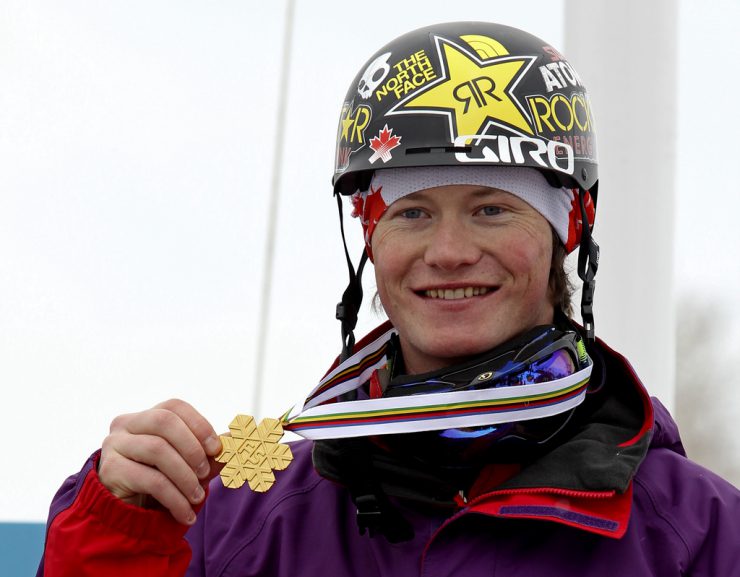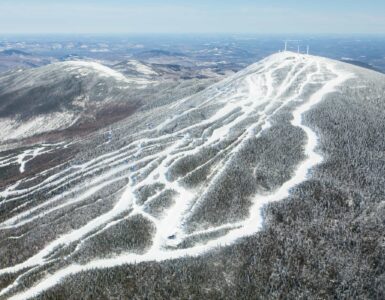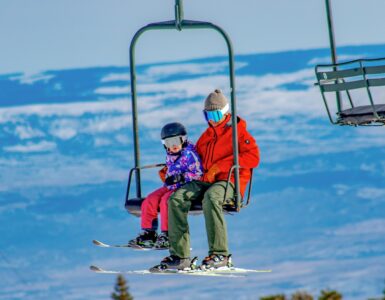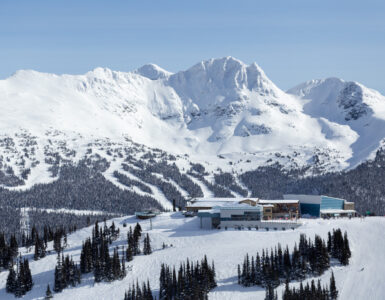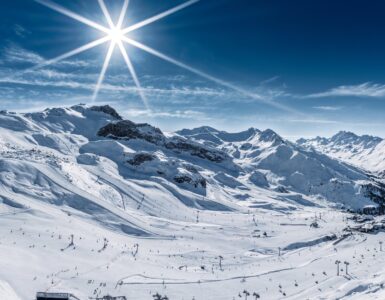The International Olympic Committee announced today that ski halfpipe would be included in the 2014 Winter Olympic Games in Sochi, Russia. It has delayed a similar bid from ski and snowboard slopestyle.
Canadian Freestyle Ski Association CEO Peter Judge said his organization and athletes are ecstatic about the news for ski halfpipe, and optimistic that once the IOC has a chance to review slopestyle it too will be included.

“We had been cautiously optimistic that the IOC would rule in favor of ski halfpipe and we did know that it was a bit of a longer shot for slopestyle, still both sets of athletes demonstrate incredible talent and both are certainly deserving of Olympic inclusion.”
As for the delay in the slopestyle decision, Judge said, “I think it’s very good news for slopestyle. Because this discipline requires a new venue and additional athletes its obviously a big undertaking for an organizing committee, especially this late in the game, so the fact hat they’re still considering adding slopestyle, to me, is a very positive sign.”
The CFSA has been working towards developing domestic infrastructure and events including plans for a national team and a national ranking system for halfpipe and slopestyle skiers and already has numerous grassroots new school programs across the country through its provincial sport organization partners; has previously hosted FIS halfpipe World Cup events; and, worked for inclusion of the new school disciplines in major events such as the Canada Games — all in an effort to build and prepare the sport for its ultimate inclusion in the Olympic Games.
Judge said that the expansion of the Games to include ski halfpipe gives “significant visibility to a sport that has been laboring in the shadows a bit.” He said, “Although the sport is already on the world stage with major events like the X Games, it is clear that the Olympic Games opens up a global audience that transcends just localized snow sports fans. This announcement points to a continued revitalization and modernizing of the Games and a changing thought process inside the IOC to reach the youth market. We hope it will continue on this path by including slopestyle in future Games.”
The 1988 Winter Games in Calgary are widely recognized as the beginning of a new direction in Games programming, with the demonstration and eventual inclusion of curling, short track speed skating and freestyle mogul and aerials events.
The Snowboard version of halfpipe debuted at the 1998 Winter Olympic Games in Nagano, Japan and has become one of the marquee events of the Games, producing such icons as the USA’s Shaun White — the ‘Flying Tomato’. Judge expects ski halfpipe and slopestyle to generate similar excitement and has high hopes for the Canadians who are consistently strong performers on the X Games and Dew Tour circuits.Canada has proved its capability to bring home the goods in ski halfpipe, winning three medals at this year’s FIS World Championships, including World Championship titles for Calgary, Alberta’s Rosalind Groenewoud and Squamish, B.C.’s Mike Riddle and a silver medal for Edmonton’s Keltie Hansen.
To date, these athletes and their contemporaries have been paying the travel, coaching and medical expenses associated with competing at high-level sport. But with Olympic inclusion comes funding from Sport Canada, Own the Podium and other agencies — welcome news for athletes like Riddle who predict Canada will be a huge contender in ski halfpipe in 2014. “I think Canada has the potential to do very well in halfpipe at the Olympics. We already have a strong team, a great coach and excellent facilities in this country. I don’t want to jinx anything, but I think that with more funding we could sweep the podium at the Games.”
Riddle characterized the IOC decision as “life-changing” and a “dream come true.” “The Olympics is the ultimate sporting competition, it’s so global and wide-reaching. We really tasted that in Vancouver in 2010 and I want to be a part of that in Sochi.”
For her part, Groenewoud – known to her fans as Roz G – is a self-professed proud and patriotic Canadian who is ready to work tirelessly to earn a berth on Canada’s first Olympic halfpipe ski team and wear the maple leaf on her back — “as long as it’s stylish.” She added, “I’m really excited, especially because I think being in the Olympics will make our sport a little more mainstream and hopefully encourage more girls to get involved. The biggest problem in our sport has been the lack of progression on the women’s side because we don’t have enough girls participating, I hope this announcement means we’ll see a lot more fresh, young faces in the halfpipe.”
Canada also has significant talent in the park. Montreal, Quebec’s Kaya Turski is an X Games champion in slopestyle and took home the silver medal at this year’s FIS World Championships debut for the sport. She is hopeful that the IOC will give her sport a spot at the Sochi Games.
“It’s an awesome opportunity for all of us, we’ve worked really hard for the opportunity to showcase our sport and I know that we’re going to kill it in Russia if we get the chance.”
And if they don’t get the chance? “Well, then I think I’ll try to learn pipe so I can get to the Olympics,” said Turski.


